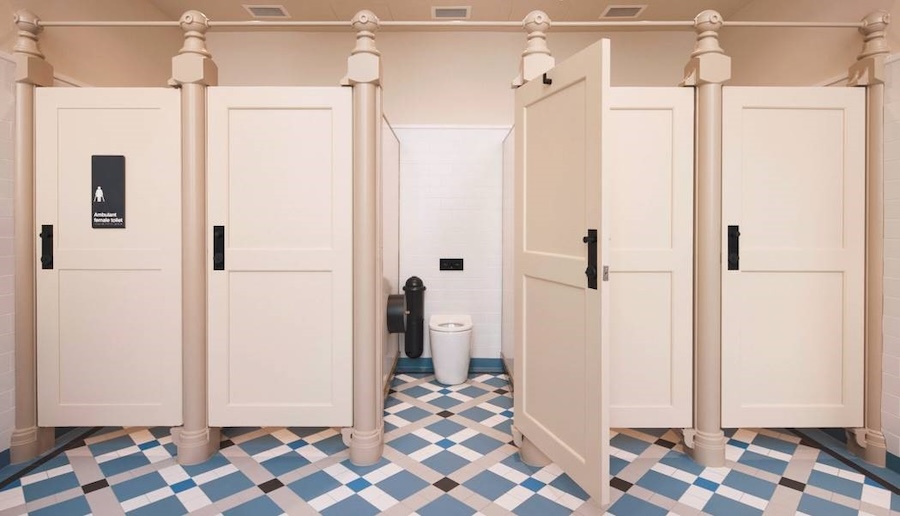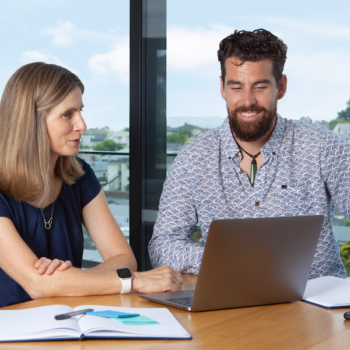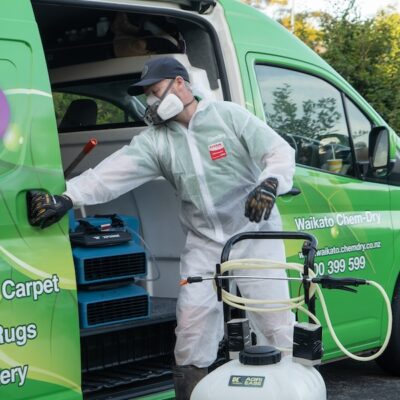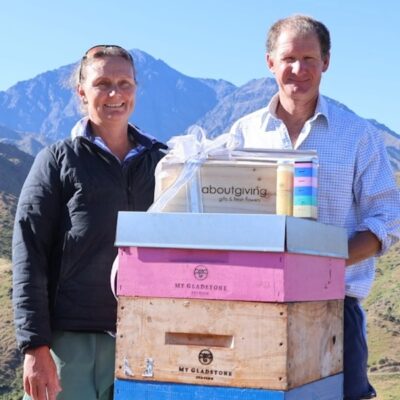Innovating in business and sanitary solutions
Founded in 2004 with a mission to revolutionise an often-overlooked hygiene aspect: Sanitary waste disposal, SaniPod now features in prestigious international locations such as Walt Disney Parks & Resorts, the University of Florida, The Peninsula Hotel London, and The Star Casino Sydney. NZBusiness sat down with Founder Trish Butler and Marketing Manager Sara Zygis to discuss SaniPod’s journey, the establishment of its US entity in 2024, and ongoing commitment to innovation, sustainability, and dignity.
What began as a passion project within Fumacare – a hygiene service business run by Trish Butler and her husband Ray Butler – has grown into a globally recognised brand. Known for its innovative touch-free technology and sleek design, the concept for SaniPod was born from frustration with outdated sanitary bins in the 1990s and early 2000s.
“The sanitary solutions were archaic – floor-mounted bins with lids you had to touch, often poorly maintained and downright unhygienic. As a woman, it felt like we were expected to accept these conditions. I thought, ‘Why can’t we do better?’,” says Trish.
Fumacare was manufacturing bins as part of its service offering, but even these fell short of Trish’s high standards. Determined to create something better, she collaborated with a designer and an engineer from Fisher & Paykel. After three years of research, development, and prototyping, the first SaniPod unit was created – a wall-mounted, touch-free solution prioritising hygiene and design.
“We even had to teach the men on our team to think like women,” Trish laughs.
“It was about understanding the experience from a woman’s perspective.”
By 2004, the first units were integrated into Fumacare’s service offering, marking the start of a product that transformed the washroom experience.
SaniPod’s success is deeply rooted in its commitment to innovation, quality, and care.
“We wanted to create something that truly cared for the user,” Trish explains.
“It’s not just about hygiene; it’s about dignity. Women deserve better than a glorified rubbish bin.”
This ethos extends to the service staff as well. “We don’t just think about those that use SaniPod’s,” says Marketing Manager Sara Zygis.
“We consider the service staff who interact with these units daily. The design minimises their exposure to waste, making their jobs safer and more efficient.”
Validation has been a cornerstone of SaniPod’s mission. “When we launched the product, I knew it was something I’d want to use,” Trish says.
“But when we saw institutions like Westfield Malls and SkyCity embracing it, we realised this wasn’t just our preference – it was the future.”
SaniPod’s design philosophy resonated with clients, and early adopters such as Westfield Mallsand Walt Disney Parks & Resorts validated the product’s importance.
Today, SaniPod’s automatic sanitary bins reimagine washroom maintenance by prioritising safety and efficiency for cleaning staff. The innovative system uses disposable liners that can be replaced without direct contact to waste, a significant improvement over traditional bins.
“With older models, cleaners had to manage waste directly, which was both unhygienic and unpleasant,” Trish says.
“Our current system allows for a clean, simple liner change without ever seeing or touching the waste.”
The Pod Petite model, in particular, has been designed with service teams in mind. It offers streamlined maintenance while fostering professionalism. For cleaning companies, incorporating SaniPod units enables them to expand their offerings and elevate service quality.
“With sanitary disposal units, the change has been a long time coming – and the introduction of our Pod Petite model allows the freedom of choice for businesses to take control of their sanitary disposal requirements. Pod Petite’s easy and safe service process means that companies can maintain their units themselves for additional cost savings – or have their cleaning company or service provider take care of it for them.
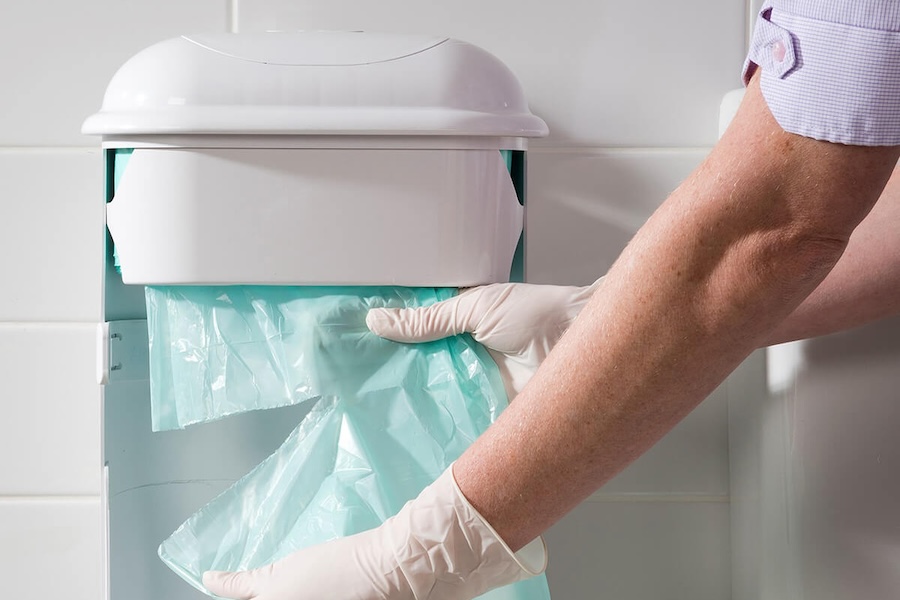
Carving out a niche
SaniPod’s wall-mounted, touch-free design was revolutionary.
“We eliminated all the ‘yuck factors’ that deter women from using sanitary bins,” Trish says.
The product’s hygienic and aesthetic features seamlessly integrate with modern washrooms, often including touch-free taps, soap dispensers, and dryers.
Sara adds: “Commercial washrooms are carefully designed, yet the sanitary bin is often an afterthought. We’ve changed that, creating a cohesive part of the experience.”
Despite the innovation, Trish is surprised by the lack of competition.
“We thought others would innovate by now, but they haven’t. It shows how much of a niche we’ve carved out.”
A major turning point for the brand came in 2006 when SaniPod debuted its touch-free model at the ISSA trade show in Amsterdam.
“We didn’t know what to expect, but the response was phenomenal,” Trish recalls.
“Large international companies were immediately interested.”
The company established manufacturing facilities in Asia to meet global demand, reducing costs and logistical challenges.
Scaling from a New Zealand operation to a global brand has required massive strategic planning Trish says.
The formation of SaniPod Inc. in 2024 provided a foothold in the North American market.
“Setting up a US entity was crucial,” Sara adds.
“It allowed us to build relationships locally and adapt to the unique demands of that market.”
This didn’t come without its challenges, namely in education. “Sanitary waste isn’t a glamorous topic, and decision-makers – often men – don’t always see its importance,” Trish says.
This was particularly evident in North America, where hygiene services for sanitary waste are less established in favour of janitors servicing units on a daily basis.
To overcome these barriers, SaniPod focused on educating distributors and clients about the benefits of their products.
“It’s all about showing people that there’s a better way,” Sara explains.
Over the years, SaniPod has played a key role in the growing awareness of menstrual hygiene, aligning with movements like period poverty and initiatives providing free period products.
“Businesses are starting to see menstrual hygiene as essential, not optional,” Sara says.
Through partnerships with organisations like Dignity New Zealand, SaniPod donates a portion of proceeds to support period equity. “We are committed to corporate sponsorship that provides period products to those in our community that need it most. Additionally we donate $1 to Dignity NZ for every SaniPod unit sold in New Zealand,” Sara says.
“It’s not just about products – it’s about systemic change,” Trish adds.
Sustainability is another cornerstone of SaniPod’s ethos.
“Our units are robust and built to last over a decade, reducing waste,” Sara explains.
The liners are made from 70 percent recycled plastic and contain degradable additives, addressing environmental concerns. The design promotes a sense of assurance – it is hygienic and safe to use which also helps to prevent sanitary products from being flushed down toilets causing plumbing issues and entering waterways.
“We’re tackling this issue from every angle – design, materials, and education,” Trish says.

A vision for the future
The future for SaniPod includes ambitious growth in Canada, America and Asia, where demand for hygiene solutions is increasing.
“North America and Asia offers a unique opportunity,” Sara says. “The markets are large, diverse, and ripe for innovation.”
The company is also actively exploring environmentally friendly materials while advocating for menstrual health through global education initiatives.
“We’re here to change the way people think about menstrual hygiene, one washroom at a time,” Sara says. “This is just the beginning.”
Years of experience have fostered confidence and clarity in her leadership says Trish.
“We’ve been doing this long enough to know our product works, it’s been tested in the busiest bathrooms, and it delivers. That confidence allows us to approach markets boldly and comfortably assist our customers with the industry knowledge we have acquired over the years.”

